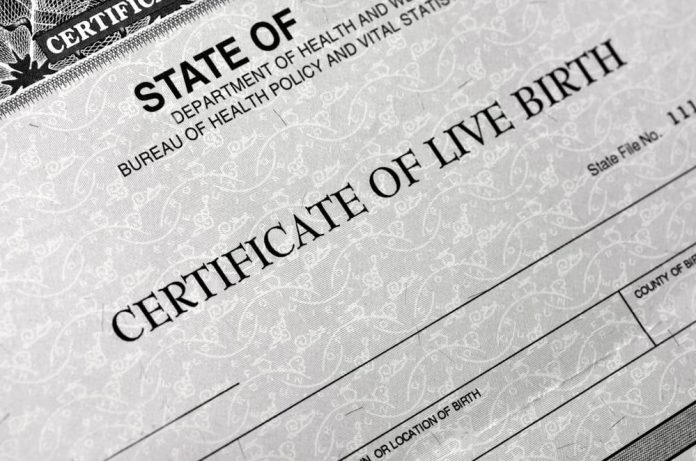
Picking the best country to proceed with surrogacy? There are countries that are favorable, the ones that do not allow it, as well as ones that come with some restrictions. Colombia belongs to the first group of countries which you have to consider for parenthood with your partner. Read more about the program and the prices involved below.
The Profile of Surrogacy in Colombia

Experts in this field will definitely enlist Colombia for the program as a go-choice. First off, it is great because all couples who want to have a baby through the program are fit regardless of their gender, or sexual identity (of course, if they are medically eligible). For instance, with the help of World Center of Baby surrogacy Colombia, you will receive full-service programs, with experienced legal support, and a depository of the perfect surrogate mothers which you can pick based on your liking, and preference.
What about surrogate mother selection in Colombia? As per the law, a surrogate mother should have at least one child to be signed up. Then, she has to pass a thorough screening both before, and after the pregnancy. Surrogacy in Colombia permits gestational IV-Vitro Fertilization which stands for surrogates having no genetic links to the newborn. So, no worries with paperwork or any related surrogate’s rights regarding the baby.
As was hinted above, Colombia is favorable for couples with various sexual identities. Therefore, gay couples can go for it and avoid hurdles with the surrogacy laws in Colombia. The country goes the extra mile protecting gays.

Now, it is high time to speak of the cost. The price may vary based on several factors. To learn about the cost for your particular case, you can contact the World Center of Baby agency, and have everything specified involving legal fees, clinic medical expenses among others. Speaking of average prices in the industry, a single program may cost you from 55K EUR, while double program prices will start from 100K EUR. Yet, compared to surrogacy in the USA, this is a far cry.
Finally, some couples might be interested in gender selection with surrogacy. Normally, a surrogacy agency in Colombia cannot guarantee a boy or girl baby for a family. However, PSG analysis practised with clinics may help determine the gender of the embryo. Upon learning this information, a clinic will allow choosing the embryo for the transfer procedure.
Let’s sum up. Surrogacy in this country is legal, and fully suitable for same-sex, and different-sex couples that both are protected by rights and laws. The average cost for the program may vary from 55K-100K EUR depending on the single or double program. The surrogates have no genetic links to a baby, and cannot pretend to have rights over them. For more information, you can find a forum, contact the World Center of Baby, or just address your inquiry to other parents who have been signed up for it in Colombia.
Legal Formalities for Future Clients of Surrogate Services in Colombia

Depending on your pick of the surrogacy agency, you may be delivered completely different information regarding the legal formalities. For your consideration, find below the main perks regarding the program.
So, surrogacy in Colombia is allowed or better to say lawful in the following cases:
- It is altruistic which means that only expenses are paid;
- Surrogate’s eggs are not used for the whole program;
- In case of physiological conceiving issues of the intended parents;
- Surrogate is fit both mentally and physically and has her own kids.
Then, if referring to Colombian law, all the donors involved in the program MUST be anonymous. Upon signing up for the program, an egg donor should obligatorily meet certain criteria to stay eligible for the donation. Such checkups are ongoing smoothly with the designated agencies from where an egg donor is sent to the best clinics.
What about birth certificates? The initial birth certificate issued to the parents features the biological father and the surrogate. If needed, it is possible to initiate a court process in order to remove the surrogate from the certificate. Again, such actions should be taken only with the advanced help of lawyers.

If you are a representative of the LGBTQ community, gay adoption in Colombia was legalized in 2015. The government decided that limitations that have previously existed regarding same-sex parents affected only childrens’ rights to have a full family. So, equality is now extended to both local people and foreigners. The foreigners, future parents, reserve the same civil rights, and guarantees when being signed up for the program. In case of any discrimination, a same-sex couple may hire a lawyer, and put the offenders under legal proceedings.
Then, it is worth specifying that upon the delivery of your baby, it automatically is conferred with Colombian citizenship which means it is granted a local passport. It helps parents to travel back to their motherland or country of residence prior to acquiring the citizenship for the child which is needed.
Finally, one more perk for intended parents. There are possibilities of signing up for the program for individuals who are HIV+ which is hard to believe in due to many stereotypes and myths around it. Thanks to advancing and innovative fertility technologies, such individuals can undergo IVF, and come up conceiving a healthy child. One should travel to Bogota, and undergo certain tests prior to the sperm washing procedure. In case, you or your partner lives with HIV+, do not give in and learn more about such programs. You will also be offered safety, and you possess the same civil rights in Colombia as the local citizens.
All in all, Surrogacy in Colombia is a place where limitations seem to vanish compared to other progressive countries where you can be discriminated against only for being an LGBTQ representative or a person with an HIV+. To come up with positive results, and have your baby, do always contact the agency, and refer to local legislation.











